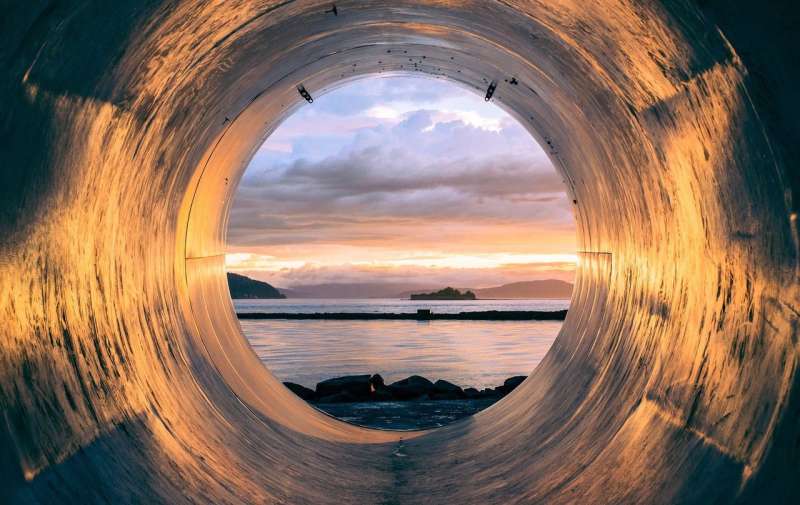
A recent report released by PennEnvironment reveals that Philadelphia’s waterways face a major challenge – they are inundated with 15 billion gallons of untreated sewage and rainwater during storms. The city’s outdated system is unable to handle this volume, leading to severe pollution in the Delaware and Schuylkill Rivers, as well as Cobbs, Frankford, Tacony, and Pennypack Creeks.
While the contaminated water does not pose a threat to drinking water as it undergoes treatment before reaching residents, it does pose a significant risk to aquatic life and recreational users. In fact, Philadelphia residents lost at least 162 days of water recreation on the Schuylkill River last year due to pollution caused by overflows.
The city’s combined sewer system, in which storm water and sewage flow through the same pipes, is to blame for these overflows. The system overwhelms the city’s treatment plants, leading to the release of untreated water into combined sewer overflows (CSOs) that empty into the waterways. This combined system serves about 60% of the city’s population, with 164 CSOs identified as major sources of pollution.
Addressing the issue
The Philadelphia Water Department has made efforts to reduce overflows through its Green City, Clean Waters program. This program, which includes numerous green infrastructure projects and pipe repairs, has already helped reduce overflows by more than three billion gallons. However, the report highlights that more needs to be done to protect the city’s waterways.
Stephanie Wein, a clean water advocate at PennEnvironment Research & Policy Center, emphasized the impact of this pollution on recreational activities such as boating, fishing, and swimming. Despite efforts to address the issue, the contamination caused by CSOs continues to pose risks to public health.
The Philadelphia Water Department has been mandated by the U.S. Environmental Protection Agency to clean up the system within the next 12 years. The department is currently working on several infrastructure projects to reduce combined sewer overflows by an additional 600 million gallons annually in the next three years.
A growing problem
The report highlights that increased rainfall due to climate change is likely to hinder progress in combating sewer overflows. Data from the Pennsylvania Department of Environmental Protection shows that annual precipitation totals have been higher in recent years compared to previous decades. Additionally, a study by the nonprofit First Street Foundation shows that Philadelphia is already experiencing more extreme precipitation than government estimates suggest.
PennEnvironment emphasizes the need for increased resources to address these overflows effectively. The recently passed federal Infrastructure Law provides hope, as Pennsylvania is set to receive $700 million for sewer and storm water projects. However, it remains to be seen how much of this funding will be allocated to Philadelphia.
The report compiled data from annual reports issued by the Philadelphia Water Department between 2010 and 2022, showing the most problematic CSOs and their impact on waterways. The group calls for accelerated efforts to stop these discharges and urges suburban and industrial users to reduce their wastewater flows.
Ultimately, cleaning up the sewage pollution from CSOs is crucial for preserving the health of Philadelphia’s waterways and ensuring safe recreational opportunities for residents. It is a task that requires commitment, resources, and collaboration.
© 2023 The Philadelphia Inquirer, LLC. Distributed by Tribune Content Agency, LLC.
Citation:
“15 billion gallons of sewage-polluted water flows annually into Philly’s rivers and streams, report says” (2023, July 21),
retrieved 21 July 2023
from https://phys.org/news/2023-07-billion-gallons-sewage-polluted-annually-philly.html
This document is subject to copyright. Apart from any fair dealing for the purpose of private study or research, no
part may be reproduced without written permission. The content is provided for information purposes only.
Denial of responsibility! TechCodex is an automatic aggregator of the all world’s media. In each content, the hyperlink to the primary source is specified. All trademarks belong to their rightful owners, and all materials to their authors. For any complaint, please reach us at – [email protected]. We will take necessary action within 24 hours.

Jessica Irvine is a tech enthusiast specializing in gadgets. From smart home devices to cutting-edge electronics, Jessica explores the world of consumer tech, offering readers comprehensive reviews, hands-on experiences, and expert insights into the coolest and most innovative gadgets on the market.


